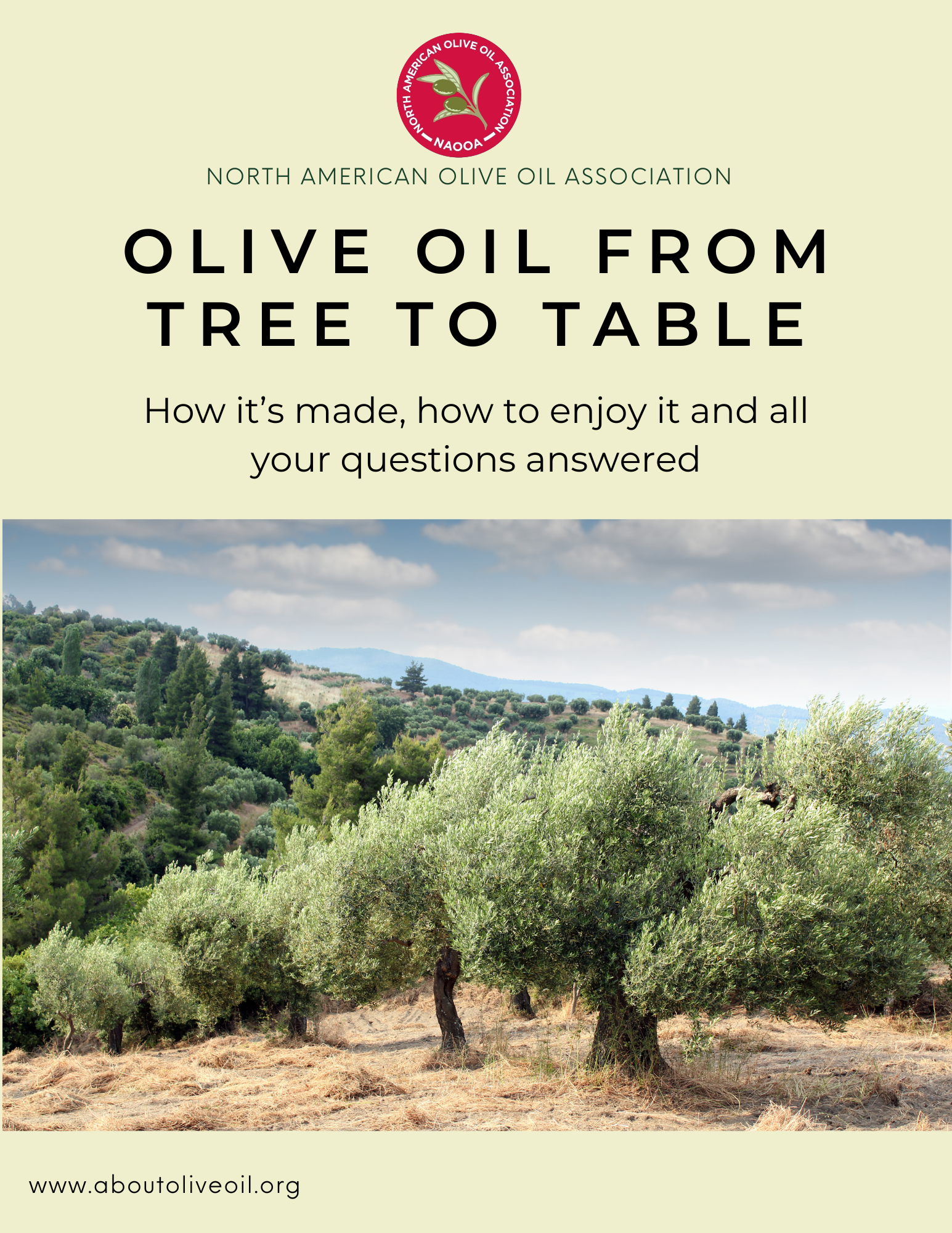If you’re paying attention to what you eat and trying to avoid ultra-processed foods, you might also be thinking about the oils you use in your kitchen. Many common cooking oils go through extensive processing, but extra virgin olive oil (EVOO) stands out as one of the most minimally processed oils available.
How can I Reduce My Consumption of Ultra-Processed Foods?
When you are choosing foods, look for those that are minimally processed. And when it comes to cooking oils, there is nothing that is less processed than extra virgin olive oil. Extra virgin olive oil (EVOO) is a minimally processed food. It is made by mechanically pressing olives without high heat, and no solvents or chemicals are used in the extraction of olive oil.
By contrast, the typical production of seed oils involves high heat crushing, a high heat bath in hexane (a chemical solvent that is a petroleum product), and then evaporation with heat of the hexane before the oil is then refined (removing odors and color) once more under high heat. Seed oils are thus exposed to high heat multiple times before they end up in a bottle on your grocery shelf, which contributes to their lack of stability during cooking.
So deciding to use olive oils for cooking, baking and dressings--and looking for olive oils on ingredient labels of other prepared foods that you buy--can be step one in reducing your consumption of ultra-processed foods. While some research indicates such foods can lead to chronic inflammation, there is substantial scientific evidence supporting the anti-inflammatory properties of olive oil, particularly extra virgin olive oil (EVOO). Here are some key points:
- Polyphenols: EVOO is rich in polyphenols, such as oleocanthal, which has been shown to mimic the anti-inflammatory effects of ibuprofen. Research indicates that oleocanthal inhibits pro-inflammatory enzymes like COX-1 and COX-2, helping to reduce inflammation in the body. Extra virgin olive oil is produced with methods to retain the polyphenols.
- Reduction of Inflammatory Markers: Studies have demonstrated that consuming olive oil can reduce biomarkers of inflammation, such as C-reactive protein (CRP) and interleukin-6 (IL-6). These markers are often elevated in people with chronic inflammatory diseases.
- Mediterranean Diet Studies: Many of the health benefits of the Mediterranean diet, which is high in olive oil consumption, are attributed to its anti-inflammatory effects. Long-term studies have shown that individuals following this diet have lower levels of inflammation and a reduced risk of inflammatory diseases.
- Impact on Gene Expression: Research has found that compounds in olive oil can modulate the expression of genes involved in inflammation. This means that olive oil may help "turn off" genes that promote chronic inflammation.
- Cardiovascular Health: Olive oil’s ability to reduce oxidative stress and inflammation has been linked to improved heart health. Inflammatory processes are a significant contributor to atherosclerosis, and olive oil has been shown to mitigate this risk.
- Randomized Controlled Trials: Clinical trials have confirmed that consuming olive oil as part of a healthy diet can lower inflammatory markers. For example, a study published in the journal Nutrients found that participants who consumed olive oil daily experienced significant reductions in C-reactive protein levels.
- Synergistic effects: Foods cooked in extra virgin olive oil are protected from oxidation during the cooking process and research has shown that the nutrients in EVOO move from the oil into the food during cooking.
Olive oil also contains bioactive compounds that extend its benefits beyond heart health, supporting brain function, reducing chronic inflammation, and providing anti-cancer properties.
The Bottom Line: Choose Olive Oil for Cooking and Health
When choosing a cooking oil, olive oil is the clear choice for those seeking to minimize ultra-processed foods in their diet. Its rich nutritional profile and stability under heat make it a better choice for both your palate and your long-term health.





